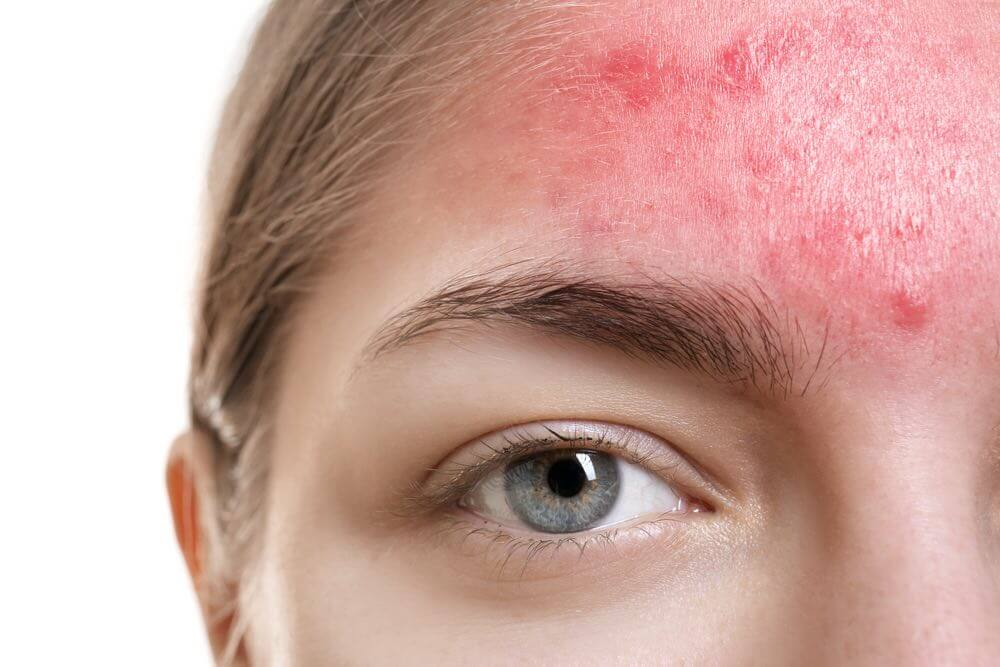Rosacea Treatment in Dubai is a chronic skin condition that affects millions of people worldwide, characterized by redness, visible blood vessels, and sometimes acne-like bumps on the face. It can significantly impact a person's self-esteem and quality of life. While rosacea is common, the exact causes are not entirely understood, and managing it can be challenging. In this article, we'll explore what causes rosacea, the triggers that can exacerbate it, and the treatments that have been shown to work effectively.
What Causes Rosacea?
Genetics and Family History
One of the key factors linked to rosacea is genetics. People with a family history of the condition are more likely to develop it. Although there is no single gene responsible for rosacea, the tendency to have sensitive skin and a hyper-reactive immune response may be inherited.
Immune System Dysfunction
Researchers have discovered that people with rosacea often have an overactive immune response. Specifically, the immune system seems to overreact to certain stimuli, leading to inflammation and the visible symptoms of rosacea. Cathelicidin, a type of protein that helps defend the skin against bacteria, has been found in higher levels in rosacea patients, potentially triggering the characteristic redness and inflammation.

Demodex Mites
Demodex mites are microscopic organisms that live on the skin, particularly in hair follicles. While these mites are usually harmless, they are found in greater numbers on the skin of people with rosacea. Some researchers believe that an overpopulation of these mites could trigger an inflammatory response, contributing to the development of rosacea.
Environmental and Lifestyle Factors
Although genetics and immune dysfunction play a significant role in rosacea, environmental and lifestyle factors can also trigger flare-ups. Common triggers include:
Sun exposure: UV rays can cause blood vessels to dilate and contribute to inflammation.
Temperature changes: Extremes in weather, both hot and cold, can exacerbate symptoms.
Spicy foods and alcohol: Certain foods and beverages are known to cause flushing in people with rosacea.
Stress and anxiety: Emotional stress can worsen rosacea, leading to increased flushing.
Skincare products: Harsh ingredients in skincare products can irritate sensitive skin and trigger flare-ups.
Understanding and avoiding these triggers is crucial in managing rosacea effectively.
What Works? Treatments and Management
Skincare Routine for Rosacea
One of the most effective ways to manage rosacea is by adopting a gentle skincare routine tailored to sensitive skin. Here are some key elements:
Gentle cleansers: Avoid cleansers with alcohol, fragrances, or harsh chemicals. Opt for mild, hydrating cleansers that won't strip the skin's natural oils.
Moisturizers: A good moisturizer helps maintain the skin’s barrier and protects it from external irritants. Look for products with soothing ingredients like aloe vera, ceramides, or hyaluronic acid.
Sun protection: Sunscreen is essential for anyone with rosacea, as UV rays are a major trigger. Choose a broad-spectrum sunscreen with SPF 30 or higher that is labeled for sensitive skin and free from harsh chemicals.
Topical Medications
Several topical treatments can help manage the symptoms of rosacea. These include:
Metronidazole: This antibiotic gel or cream is one of the most commonly prescribed treatments for rosacea. It helps reduce inflammation and redness.
Azelaic acid: Another popular topical treatment, azelaic acid works to reduce the swelling and bumps associated with rosacea. It can also improve the appearance of the skin over time.
Ivermectin: This is an anti-parasitic cream that targets Demodex mites, which are thought to play a role in rosacea. It also has anti-inflammatory properties.
Brimonidine: This topical gel constricts blood vessels in the skin, reducing redness temporarily. It works within a few hours and can last up to 12 hours.
Oral Medications
In more severe cases of rosacea, oral medications may be necessary. These include:
Antibiotics: Oral antibiotics, particularly doxycycline, are often prescribed for their anti-inflammatory properties. While they may not cure rosacea, they can help control flare-ups and reduce inflammation.
Isotretinoin: In cases of severe rosacea that are unresponsive to other treatments, isotretinoin (commonly known as Accutane) may be used. This powerful medication helps reduce oil production and has anti-inflammatory effects.
Laser and Light-Based Therapies
For patients with persistent redness or visible blood vessels (telangiectasia), laser treatments can be highly effective. Laser therapy targets dilated blood vessels, causing them to shrink and fade over time. Common laser treatments for rosacea include:
Pulsed dye laser (PDL): This targets the blood vessels responsible for the redness and helps to reduce flushing.
Intense pulsed light (IPL): IPL is a non-invasive treatment that uses light to target both redness and brown spots. It is effective for reducing the visible signs of rosacea and improving overall skin tone.
These treatments usually require multiple sessions but can provide long-lasting results.
Lifestyle Changes and Triggers Management
Beyond medical treatments, lifestyle changes play an important role in managing rosacea. By identifying and avoiding personal triggers, you can help minimize flare-ups. Keeping a journal of what you eat, drink, and experience throughout the day can help you pinpoint specific triggers that worsen your condition.
Diet adjustments: Many rosacea sufferers find that avoiding spicy foods, hot beverages, and alcohol can help prevent flushing. Instead, opt for cooling foods like cucumbers, melons, and leafy greens.
Stress management: Since stress is a common trigger, incorporating relaxation techniques such as yoga, meditation, or deep breathing exercises can be beneficial.
Natural and Alternative Remedies
Some people with rosacea find relief in natural or alternative remedies. While these treatments may not work for everyone, they can be used as complementary options alongside conventional treatments. Popular natural remedies include:
Green tea extract: Green tea has anti-inflammatory properties and may help reduce redness when applied topically.
Niacinamide: A form of vitamin B3, niacinamide is known for its soothing and anti-inflammatory properties. It can be found in serums and moisturizers formulated for sensitive skin.
Oatmeal: Colloidal oatmeal is a well-known ingredient for soothing irritated skin and reducing inflammation.
Conclusion
Rosacea is a complex and multifaceted condition, but with the right approach, it can be effectively managed. By understanding the potential causes, identifying your triggers, and following a tailored skincare routine, you can reduce flare-ups and improve your skin’s appearance. Whether you opt for medical treatments like topical medications and laser therapy, or natural remedies and lifestyle changes, there are numerous ways to control rosacea and boost your confidence.
